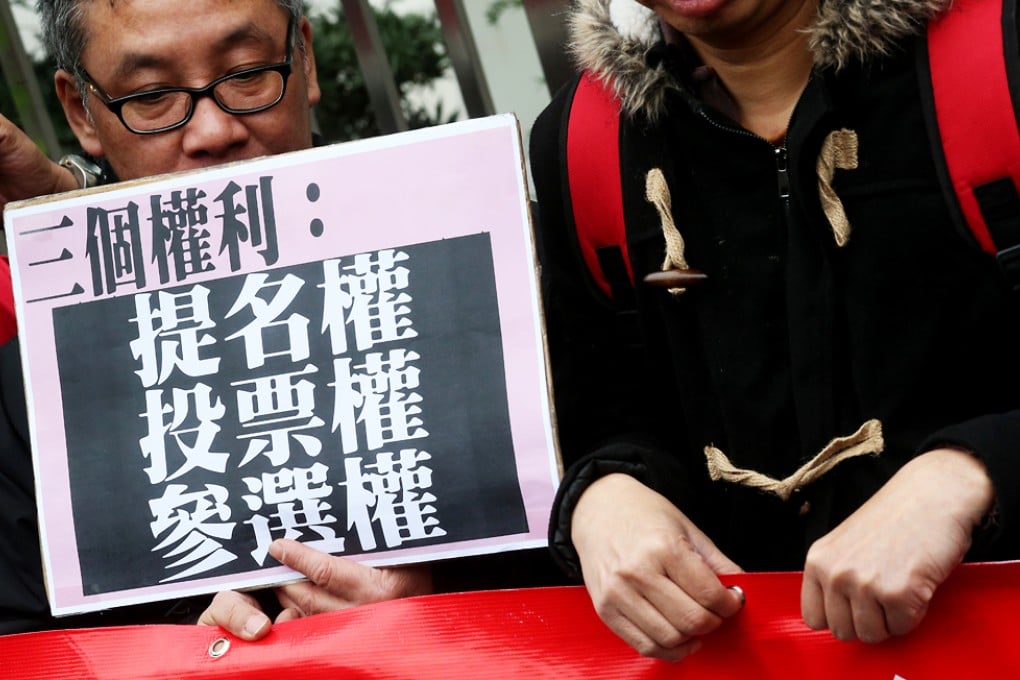Chief executive voting method could change after 2017, says mainland expert
Mainland academic urges compromise by moderate pan-democrats so path to universal suffrage won't become a 'life-or-death' struggle

An understanding between Beijing and pan-democrats that the method for electing the chief executive could be changed after universal suffrage is introduced in 2017 would create more room for compromise and avoid a "life-or-death" struggle, a leading mainland expert on Hong Kong affairs says.
Jiang Shigong called on moderate pan-democrats to take the initiative in accepting the legal framework laid down in the Basic Law as their basis for fighting for a more democratic electoral method, to pave the way for dialogue with Beijing.
"Perhaps state leaders in charge two decades from now will be more open-minded and enlightened," Jiang, deputy director of Peking University's Centre for Hong Kong and Macau Studies, said. "There is no need for Hong Kong to assume electoral methods can't be changed after 2017."
His views were echoed by some Beijing-friendly politicians, such as Tam Yiu-chung, chairman of the Democratic Alliance for the Betterment and Progress of Hong Kong.
In an interview with the , Jiang said that if an understanding could be reached and some issues resolved in subsequent years, "we can avoid a life-or-death scenario for the debate on the 2017 chief executive election. It would take some heat out of the debate".
First, however, pan-democrats would have to agree with the Basic Law provision that the nominating committee is the only body able to name chief executive candidates.
